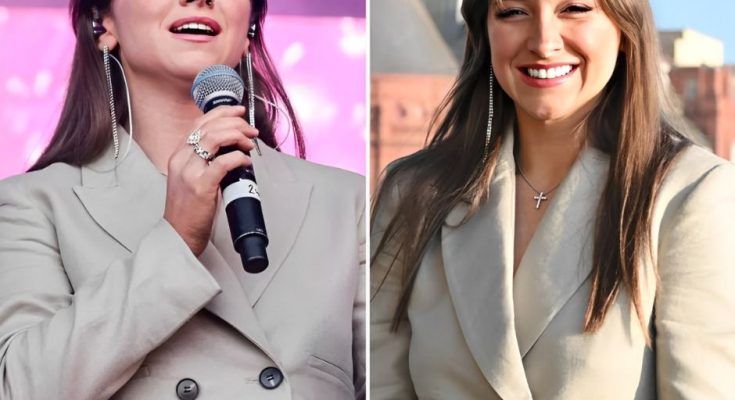
There was a certain shift in the air the moment she stepped on stage — not loud, not sudden, but unmistakable. A pause seemed to ripple quietly across the audience, not because they were told to, but because they wanted to stop and take it in.
The energy changed, not in volume but in texture. Something more personal began to settle over the crowd — not a roar of excitement, but a silent understanding that they were about to witness something meaningful.

She didn’t rush. She didn’t need to. Her presence alone drew attention like gravity — steady, calm, and quietly powerful. Everyone’s eyes followed her, not out of obligation, but out of pure curiosity and focus.
It wasn’t just about entertainment anymore. It became something deeper — a shared moment that asked nothing of the audience except to feel. And they did.

You could sense it in how people responded — not with shouts or noise, but with stillness, with attention, with the rare kind of silence that holds weight. No one needed to be told this was special. They already knew.
There was no spectacle, no over-the-top production needed. It was the kind of moment that made you forget you were surrounded by thousands of others. For a few minutes, it felt like it was just you and her — and that was enough.
Even after she left the stage, people didn’t immediately break into chatter or movement. There was a lingering quiet, as if everyone was letting the moment settle before reality returned. Something had landed. And it stayed.

What she gave that night wasn’t just a performance — it was permission. Permission to feel, to pause, to reflect, to breathe. And somehow, in giving that, she made the evening unforgettable.
It wasn’t about being impressed. It was about being moved. And long after the lights came on, that feeling stayed with them — not flashing, not fading, but glowing softly inside.
Because sometimes, the most powerful moments don’t demand attention. They earn it, quietly — the way she did, simply by showing up and being fully present.



